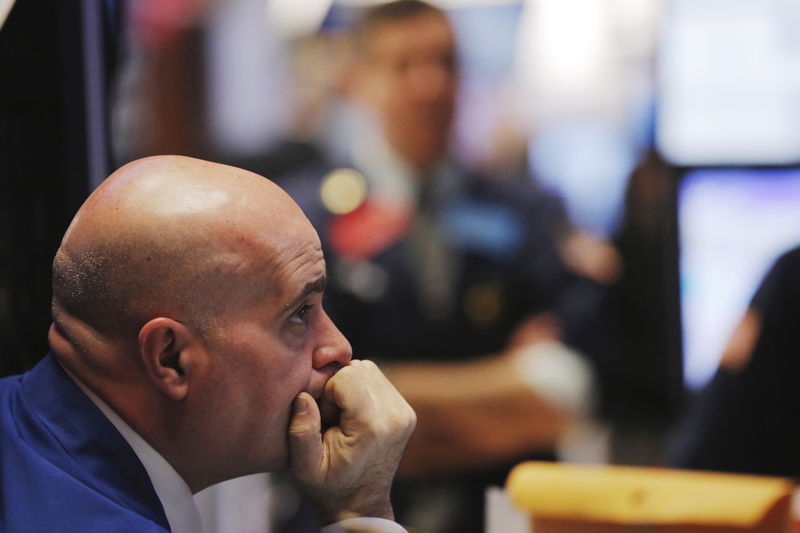Investing.com — In its latest report, “Dispatches From The Future (January 2, 2026): The 2025 Recession”, BCA Research outlines potential market outcomes in the event of a 2025 US recession, highlighting dramatic shifts across global markets.
In this scenario, equities came under significant pressure, with the falling to as low as 4197 in November before recovering slightly to end the year at 4452.
This decline represents a peak-to-trough drop of 31%, and came as a shock to investors and analysts. However, BCA argues this should be no surprise, given that the S&P was trading at 22.4-times forward earnings in December 2024, 33% higher than the average forward price-to-earnings (P/E) ratio seen between 2015 and 2019.
BCA notes consumer staples, healthcare, and utilities were the best-performing sectors in this recessionary scenario, while “the euphoria over AI stocks waned.”
, often regarded as a digital hedge against inflation, failed to live up to its reputation in this scenario. Instead of attracting safe-haven flows, BCA said the cryptocurrency mirrored the broader equity market’s volatility, plummeting to $45,000 by year-end.
“Bitcoin’s supporters had hoped that fiscal instability would cause money to flow into the crypto space. It did not. As it turned out, Bitcoin was just a high-beta play on stocks,” BCA wrote.
In the bond market, yields initially spiked amid fiscal uncertainty but ultimately retreated as the Federal Reserve cut the benchmark rate to 2% and the settled at 3.25%. Credit spreads widened sharply, according to the research firm.
, on the other hand, outperformed Bitcoin, ending the year 10% higher. The bullion benefited from falling interest rates and increased purchases by emerging market central banks.
“Owning gold provided a hedge against many of the surprising developments of 2025,” the report states.
Among other commodities, oil and industrial metals prices both declined.
In the currency space, the was the top performer, rising to 115 against the , which experienced “extreme volatility” in a recession-driven 2025.



